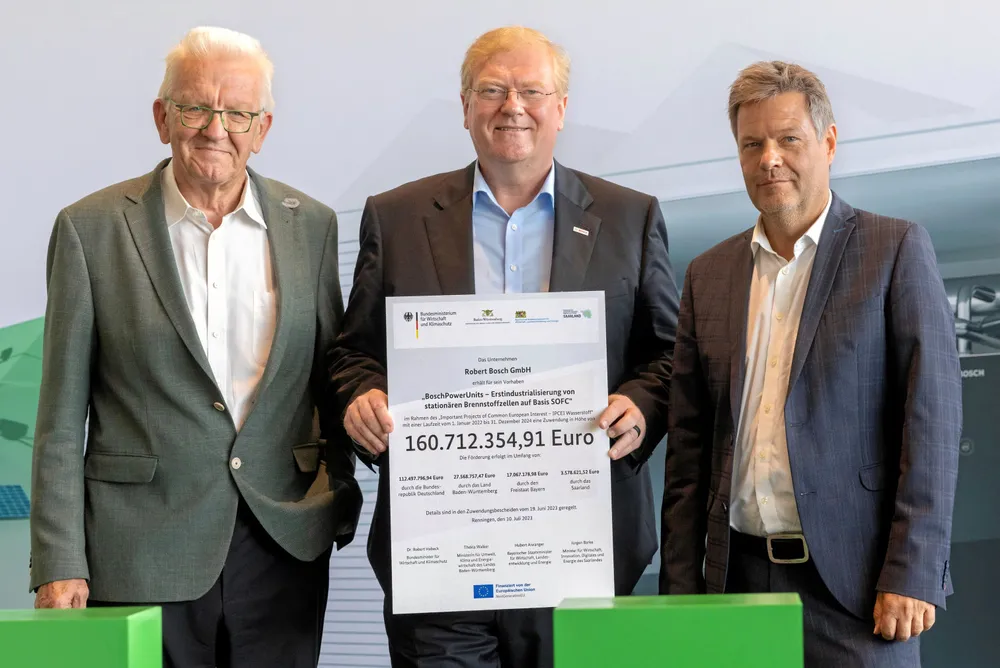German government hands €161m grant to Bosch to industrialise hydrogen-to-power systems
Vice-Chancellor Robert Habeck presents funding for solid-oxide fuel cells after EU approves plan as an Important Project of Common European Interest

Vice-Chancellor Robert Habeck presents funding for solid-oxide fuel cells after EU approves plan as an Important Project of Common European Interest
